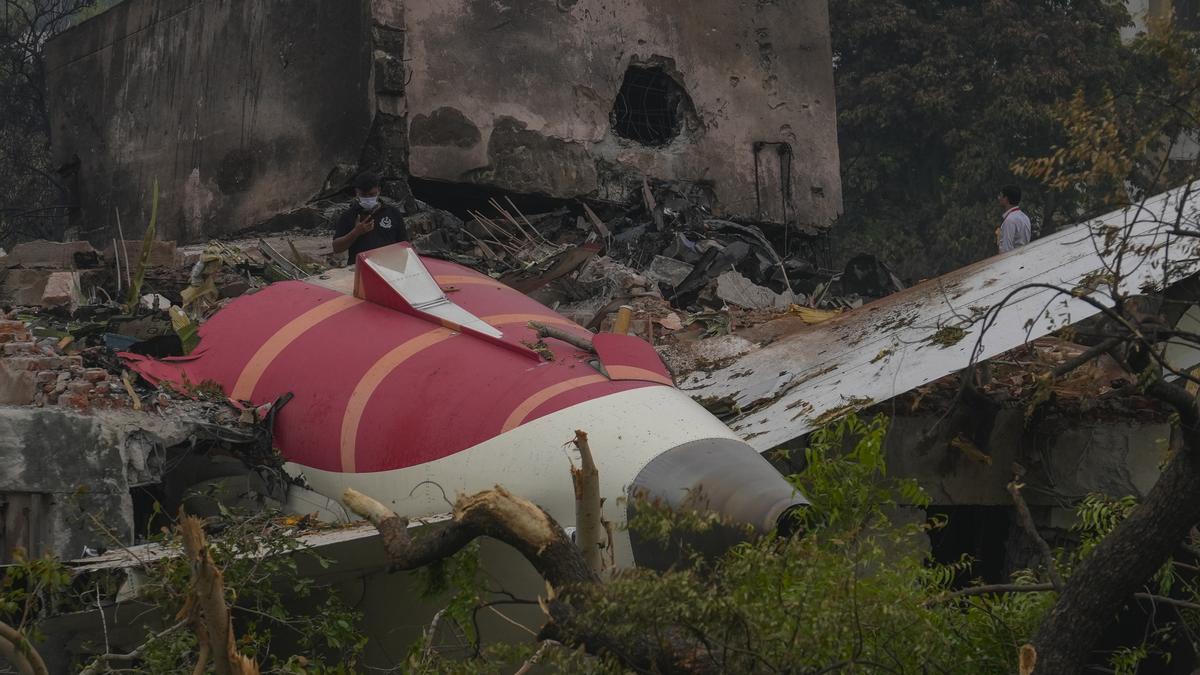(This is the latest edition of the Political Line newsletter curated by Varghese K. George. The Political Line newsletter is India’s political landscape explained every week. You can subscribe here to get the newsletter in your inbox every Friday.)
Lessons in putting out accurate information, from an HIV campaign dating back to the days before our now post-truth world
The crash of Air India 171 that killed hundreds — the exact number is yet to be announced — is turning out to be another case of extreme information management rather than information sharing. While there is scarcity of authentic information, people — many with no technical expertise — have theories that are proliferating wildly through social media.
As it turns out, it’s not just the armed forces that are above questioning. It seems even private companies are entitled to the protection of silence. Any crash is a subject of investigation, which must, in fairness, cover all aspects, including safety practices, the airline’s management, and pilot error. We hope that Air India is as transparent as it promises to be.
Free, open, and critical exchange of facts, and opinion based on accurate information in the public domain are the essential ingredients of a vibrant and successful society. More importantly, these are essential for good governance, in both public and private sectors.
Boeing, the maker of the aircraft that crashed, sought to punish whistleblowers who flagged serious security concerns regarding its 787 series, according to American media reporting. Free, fair, timely, and accurate information is endangered by two distinct threats: the reluctance of its custodians to share it; and the spread of misinformation by people motivated by reasons other than the truth. We are left with a barrage of propaganda and misinformation.
A free society in which institutions, companies, and people in authority, in both the private and public sectors are held accountable and are obligated to face questions from the people, will be better equipped to prevent and manage all disasters.
Let me share with you one example of how openness and transparency in place of secrecy turned around a governance challenge in the undivided State of Andhra Pradesh (AP). AP was a hotspot of HIV infections, and the stigma associated with it drove more and more patients into leading a secret life, with people vulnerable to the virus avoiding testing. Nine out of 10 with the infection did not know they had it, and continued to be carriers of the virus.
Asok Kumar, an IAS officer in charge of the AIDS control mission, developed a campaign in 2006 titled Be Bold, which encouraged those carrying the human immunodeficiency virus to come out and socialise publicly.
The knowledge that they were not alone gave people the courage to speak about the illness, and many found life partners through the information-exchange events. The experiment took a dramatic turn when the then Chief Minister of the State, Dr. Y.S. Rajasekhara Reddy, decided to undergo an HIV test in public view in 2006. He also asked his Cabinet members to join in, and 70 MLAs also got tested. The secrecy of HIV testing was removed significantly, and the number of tests grew rapidly.
As part of the campaign that ran for 13 months, 18 lakh tests were done, compared to around 5 lakh the previous year. More than 1 lakh tested positive; as testing increased and more people took preventive measures and medicines, prevalence declined. In 2021-22, a total of 23,57,260 people were tested for HIV (AP was bifurcated by then), and 13,815 were diagnosed with the infection, a significant reduction in prevalence.
All situations of governance deficiency and crises can be mitigated by the sharing of accurate, reliable information in a timely manner, leading to public discussions — even public outcry — based on it. A better-informed public can lead to better social and corporate outcomes. A public armed with knowledge can even prevent air crashes.
Federalism Tract -Notes on Indian diversity
Police state
The US Federal government led by President Donald Trump took control of the California National Guard, which is usually under the command of the State Governor, to quell street riots in protests against immigration law enforcement. Additionally, the Marines were deployed in Los Angeles. California State has won the first legal challenge, in which the judge held that the Federal government overstepped its power in taking over the command of the National Guard. This case, which is certain to reach the Supreme Court, will be a milestone in US federalism.
Mother of confusion
Tamil writer Perumal Murugan corrects Kamal Hassan who misspoke on Tamil being the mother of Kannada and then doubled down on his argument. Forget identifying the mother of any language, identifying the mother of a human being is also not as easy as it used to be. Whether someone is the father or mother of a child, in a biological sense, might sound a rather easy determination to be made. But a transgender couple in Kerala had a biological child: the person who gave birth to the baby now identifies as a male, and the person who impregnated them now identifies as a woman. But the local municipality insisted on identifying ‘mother’ and ‘father,’ with ‘transgender’ written in brackets, in the birth certificate of the child. The couple moved the Kerala High Court with the plea they be called ‘parent’, instead of ‘mother’ or ‘father.’ The Kerala HC has allowed the plea and ordered the municipality to issue a certificate with their names mentioned as ‘parent’.
Published – June 14, 2025 04:30 pm IST
